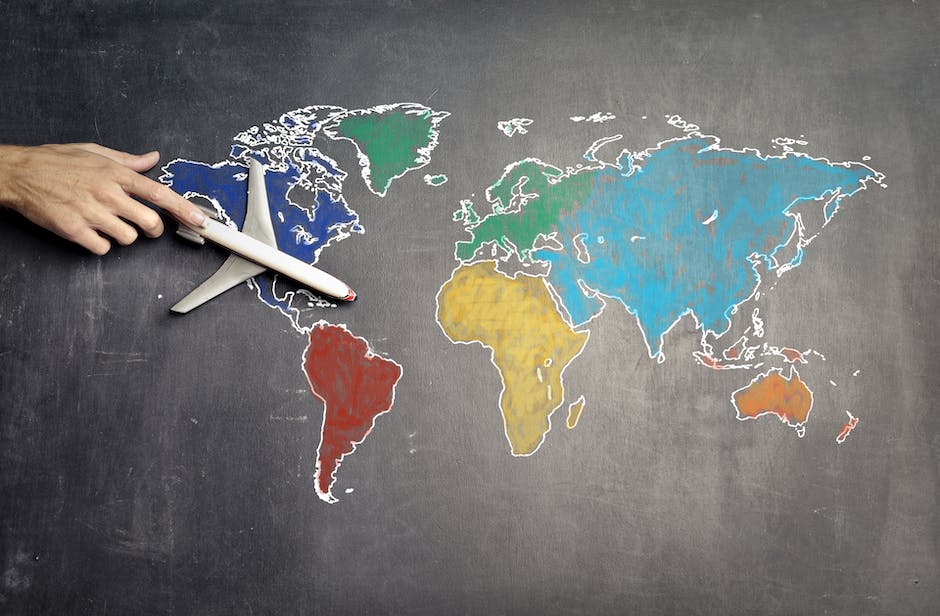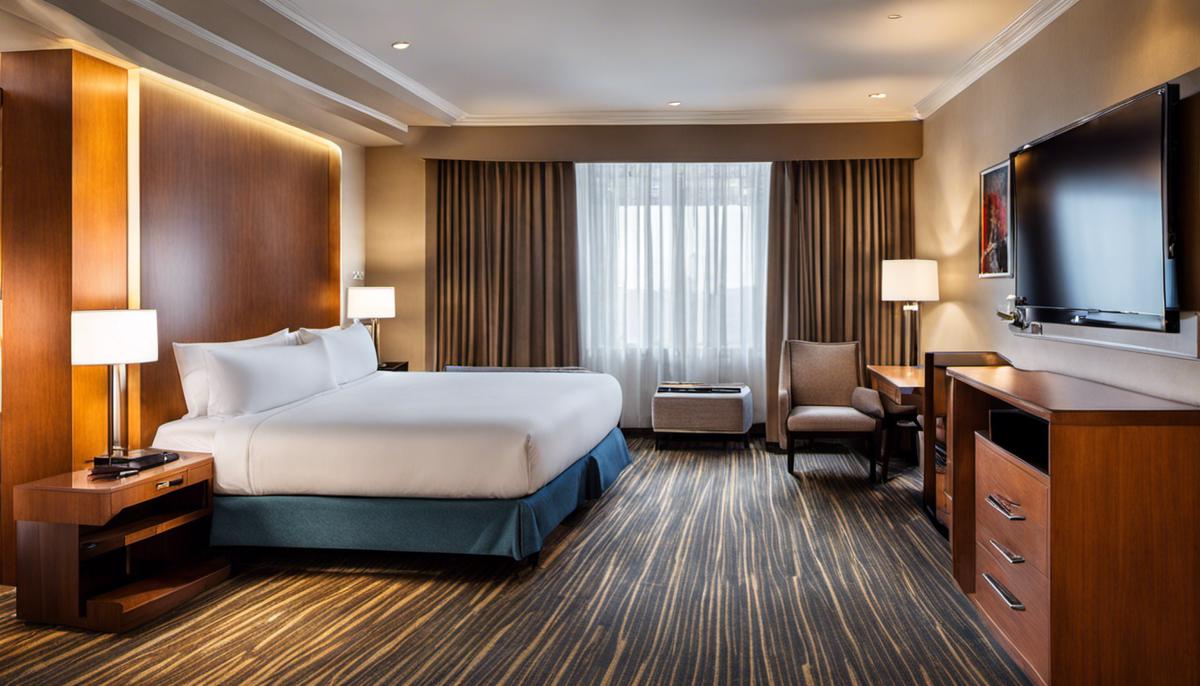Effectively planning a trip requires a blend of foresight, research, and adequate preparation. Your dream excursion doesn’t just hinge on the destination alone, but a series of factors merged for the ultimate travel experience. The intricacies of planning, right from comprehending your travel requirements to choosing just the right hotels, are equally paramount as the travel adventure itself. Not only does proper planning enhance your journey, but it also ensures you get the most from your hotel stays. This discourse seeks to guide you on how to arrive at such a comprehensive trip plan, encompassing factors like timing, interests, accommodations, cost management, reviews, and the nitty-gritty of the booking process. Furthermore, it zeroes in on the essential pre-travel preparations, coupled with a thorough travel and hotel checklists for an efficient, exciting, and unforgettable trip experience.
Understanding Your Travel Requirements
Understanding Your Travel Requirements
Before starting to plan a trip, it’s vital to consider several factors which can dictate the trip’s success. One extremely important factor to take into account is the destination. This determines the nature of the travel, amenities needed, sights to see, cultures to engage with and cuisines to taste. Moreover, the destination chosen also has a significant impact on the choice of hotels.
Determine the timing of your trip. It’s essential to be aware of your destination’s peak season and off-season to avoid overpriced stays and overcrowded places. Choose your travel dates wisely, as hotel rates can greatly vary depending on the season.
Consider the duration of your trip as well. The length of your stay can deeply impact budgeting, sight schedules, and hotel bookings. Short vacations often require hotels that are located centrally and near tourist spots, while longer stays allow for more flexibility in hotel choices.
Interests and Preferences
Another crucial aspect of travel and hotel planning is considering personal preferences and interests. Are you an adrenaline junkie looking for adventures or a culture enthusiast eager to visit museums? Your interests will help you choose the type of hotel – maybe you’ll need a luxury spa resort for a pampering stay, a lively city-center hotel for easy exploration, or a serene sea-view hotel for a relaxing vacation.
Consider your dietary needs when planning your trip and choosing hotels. If you, or anyone you’re travelling with, have particular dietary restrictions, you will need to ensure the hotel’s dining options can accommodate them. Many hotels offer a variety of cuisines and personalized menus for guests with specific dietary needs.
Accessibility is another key preference to consider. Depending on your needs, look for hotels that provide features like wheelchair ramps, handrails in bathrooms, and elevators.
Hotel Selection Process
The process of deciding on a hotel forms a core part of any travel plan. It involves considering various essential factors such as your ultimate travel destination, the duration of your stay, your specific interests, and dietary requirements, amongst others. Once these elements are known, you can sift through the myriad of hotel options available and settle for the one that caters to your unique needs the most.
Detailed research is necessary at this stage. Make use of reliable travel platforms that offer all-inclusive information about various hotel options, including on-site facilities, room categories, price ranges, geographical location, and firsthand reviews from previous guests. These platforms will enable you to filter your search using preferences like a complimentary breakfast, a swimming pool, free internet access, and much more.
Diligently taking these elements into account guarantees that your travel preparations result in a customized travel plan that aligns seamlessly with your preferences, setting the stage for an exceptional vacation experience.

Choosing Your Ideal Hotels
Identifying Your Ideal Hotel: Synchronising your Choice with Your Travel Needs
As you chart out your travel plans, opting for the right hotel to stay at forms a crucial part of your travel itinerary. The accommodation you land on significantly influences your overall travel experience as it directly relates to comfort, simplicity, and contentment. Thus, to ensure that the chosen hotel aligns perfectly with your expectations, you need to evaluate specific factors. Your decision-making should revolve around the hotel’s geographical convenience, available facilities, its rating, the cost factor, customer feedback, and the diversity of hotel types available in your selected travel destination.
The Importance of Location
One of the key factors to consider when choosing a hotel is its location. You’ll want to ensure that the hotel is conveniently located near the attractions, activities, or events that you’re planning to visit during your trip. Whether it’s a museum, a beach, a conference center, or a shopping district, proximity to your points of interest can save you time and transportation costs.
Different Types of Accommodations
Accommodations refer to the types of rooms available and their associated features. It’s important to select a hotel that can cater to your specific needs. For instance, a family traveling with children would want to look for a hotel that offers family rooms or suites, while a business traveler might prioritize a hotel with in-room workstations or a business center.
Hotel Rating: A Benchmark for Quality
Hotel ratings, typically ranging from one to five stars, provide a basic gauge of the hotel’s quality of service and facilities. However, these ratings can vary depending on the specific rating system used. Nonetheless, understanding these ratings can provide an initial insight into the level of comfort and amenities you can expect from a particular hotel.
Importance of Amenities
A hotel’s amenities can significantly enhance your stay. Amenities typically include services and facilities like free Wi-Fi, a swimming pool, spa facilities, health and fitness centers, restaurants, room service, and laundry services. When choosing a hotel, it’s essential to determine what amenities you will need during your stay and ensure that your selected hotel offers them.
Balancing Cost and Quality
Cost is a major factor for most travelers. While budget is important, it shouldn’t lead you to compromise on your comfort and the quality of your stay. Many hotels offer discounts on advance bookings or longer stays, so it’s worth doing some research to find the best deals.
The Power of Customer Reviews
Lastlt, customer reviews play an essential role in choosing a hotel. Reading reviews from previous guests can give you a clear view of the hotel’s quality of service, how well they maintain their rooms, the friendliness of their staff, and the overall experience. It can also help you uncover potential problems or disadvantages that might not be evident from the hotel’s description or photos.
The process of picking a hotel requires careful consideration of numerous aspects. It isn’t just about the cost or location, it’s about finding a hotel that caters to your unique travel needs. By doing this, you’ll secure a restful and fulfilling stay that significantly enhances your entire travel experience.

Booking the Chosen Hotel
How to Secure Your Ideal Hotel
Once you’ve made the decision regarding your ideal hotel, the next crucial step is determining the best method of booking your chosen accommodation. This could be done via different avenues such as direct reservations, through travel agencies, or by way of online booking platforms.
Booking directly usually involves getting in touch with the hotel straightaway either via their website or by telephone. This method often ensures accurate and updated information regarding room availability. Not to mention, directly booking might come with extra benefits or exclusive offers not normally obtainable through other routes.
Conversely, travel agencies add a more intimate touch to the hotel booking process. Agents can recommend the finest hotel options that match your travel needs, bargain superior deals for you, and generally simplify the booking process despite charging a fee for their service.
On another note, online booking platforms are rapidly gaining popularity due to the advantage of convenience they provide. They allow comparison of hotel prices across numerous locations and for various dates making decision making easier. Websites or applications such as Expedia, Booking.com, or Airbnb provide user reviews that can guide you into making smarter and more informed choices.
Key Considerations When Securing Your Hotel Booking
When planning a trip and making a hotel reservation, a few pivotal factors should be taken into account. This includes understanding the hotel’s cancellation policy, notifying them of any special requests, and ensuring your preferred payment method is accepted.
Cancellation policies often vary widely from one hotel or booking platform to another. Some provide a full refund if cancellations are made within a specified duration, while others enforce non-refundable rules. Having a clear understanding of these terms can prevent unexpected costs or disappointments if your travel plans alter.
From specific room types, dietary needs to accessibility requirements, don’t hesitate to communicate any special requests during the booking process. While no hotel can guarantee all requests, giving them notice in advance can significantly increase your chances.
Payment methods are equally vital. Standard practice includes accepting credit and debit cards, but modern methods like PayPal, direct bank transfers, or even cryptocurrencies, are increasingly being offered. Consequently, always verify that your chosen payment method is acceptable before finalizing your booking.
To summarize, having comprehensive knowledge of booking channels, consumers’ rights, and hotel policies will not only ensure a smooth hotel reservation process, but will also enhance the overall trip planning experience. Remember to scrutinize the fine print and seek clarification when necessary.

Preparation and Packing
Re-confirming Your Hotel Reservation
One of the essential elements of trip planning involves re-checking your hotel booking to avoid any unforeseen glitches in your travel schedule. This often involves re-confirming your reservation dates, understanding the check-in and check-out timings, and becoming fully aware of the hotel’s cancellation and modification policies. Wherever feasible, either printing or downloading a copy of your booking confirmation can serve as an invaluable reference during your journey.
Packing according to Climate and Activities
Your destination’s climate plays a significant role in determining what to pack for your trip. If it’s summer, light clothing like shorts, t-shirts, sun hats, and sunglasses are essential. For winter travel, don’t forget to pack warm layers, scarfs, hats, and thermal gloves.
Beyond the weather, also consider the activities you plan to engage in. For instance, if you plan to swim in the hotel’s pool, bring an adequate swimsuit. If your trip involves outdoor activities such as hiking, pack appropriate gear. If your hotel has a gym, pack gym clothes and shoes.
Using a Packing List
A packing list can be extremely valuable in ensuring that you don’t forget any essentials. This list should include toiletries, travel documents, clothing, electronics, medical supplies, and any other items you deem necessary. Give special attention to the items that your hotel doesn’t provide, as forgetting them might cause inconvenience.
Considering the Hotel’s Amenities
It’s crucial to know what the hotel provides before packing for your trip. Many hotels provide basic amenities like soap, shampoo, towels, and hairdryers. However, not all provide toothpaste, toothbrush, or body lotion. Therefore, it’s important to check the hotel’s amenities list on their website or contact them to clarify what is available during your stay.
Travel Insurance
Acquiring travel insurance is an essential step in trip preparation. Insurance helps cover any unexpected costs related to trip cancellation or interruption, lost luggage, or medical emergencies.
Safety Measures
Safety measures are another crucial aspect of travel preparation. Research your destination and understand potential safety risks. Furthermore, inform your family or friends about your travel itinerary. It’s also wise to register your travel plans with your embassy if traveling abroad.
Advance Check-In
Many hotels now offer the option of online advance check-in. This can save you considerable time upon arrival. It’s a useful feature, especially if you’re arriving late at night or if the hotel has a busy reception area.
Local Currency
While credit cards are widely accepted, it’s still important to have some local currency during your trip. This is particularly useful for tips, local markets, small eateries, and in case of an emergency. Some hotels also require a cash deposit upon check-in, so it’s wise to be prepared.
Effective planning and preparation are vital in elevating your travel experience, leading to a comfortable, enjoyable, and seamless journey.

Travel and Hotel Checklist
Embarking on Comprehensive Travel Planning
No matter if it’s a corporate trip or a holiday getaway, it’s crucial to plan your journey well ahead of time. This encompasses budgeting for your trip, selecting your destination, confirming your accommodations and planning your activities. By thoroughly researching and booking ahead, you’re ensuring everything is arranged and ready, paving the way for a smooth trip.
Choosing Your/Booking Hotels
When selecting a hotel, you should consider factors such as your travel budget, how many travelers are in your group, and what amenities you require. High-quality photos, maps of the area, and guest reviews can help you make an informed choice. It’s always a good idea to reserve your hotel well in advance to avoid any last-minute availability issues and to secure the best possible rate. When making your reservation, be sure to get a confirmation number or email and save it as it proves that your reservation is confirmed.
What to Confirm Before Arrival
Once you’re nearing your travel date, you’ll need to confirm your hotel reservation. This check ensures that your reservation is still intact and gives you an opportunity to make any necessary changes. You should check the check-in and check-out timings. It’s also essential to know about any extra fees or deposits that you might have to pay upon arrival.
If you plan to arrive late, making a note of this with the hotel can prevent them from giving away your room. It’s a good idea to make any special requests at this point too, such as room preference, accessibility needs, or crib for an infant, if needed.
Things to Remember While Checking In and Out
When you arrive at your hotel, you’ll need to check-in. Remember to have your ID ready and your reservation confirmation in case of any issues. It would help if you familiarize yourself with the hotel’s policies at this point, such as meals, room services, and Wi-Fi usage.
Upon checking out, do a quick scan of your room for any personal belongings you might have left behind. Ensure any extras (like the mini-bar or pay-per-view movies) are correctly billed, and hand over your room keys.
Health and Safety Precautions
Given the current global situation, you should ensure that your chosen hotel follows proper health and safety protocols related to COVID-19. Ensure that they practice physical distancing in common areas, regular cleaning, and sanitation. Some hotels also offer contactless check-in and check-out options.
trip Planner Tools
Many online tools and apps can assist in planning your trip and keeping everything organized. Websites such as Expedia, Booking.com, and TripAdvisor offer extensive information on hotels and other accommodations. These platforms provide real-time rates and availability, along with guest reviews, giving a more comprehensive picture of the property.
Also, certain trip-planning apps like Tripit and Google Trips help to keep track of all the details of your trip in one place—from flight details and hotel booking to guides for local attractions. Google Maps is another useful tool, offering offline maps, directions, and details about places of interest.
Thus, with a bit of planning, research, and due diligence, any trip—be it business or leisure—can become stress-free, ensuring you can focus on enjoying the experience to the fullest.

Whether you’re a novice traveller or a seasoned globetrotter, a meticulously devised trip plan guarantees a stress-free adventure. From defining your travel prerequisites to identifying your ideal hotel, booking it in the most effective manner, and packing aptly for your journey – each step has significant value. Traveling isn’t merely a change of scenery but also your window to diverse cultures, experiences, and self-discovery. Aimed at encompassing such comprehensive nuances, this guide provides key insights into successfully managing your itineraries and hotel stays. More than just a guide, it serves to complement your journey from the planning phase to the moment you set off into the horizon, promising an efficient, delightful, and memorable travel experience.
Writio: For top-notch AI-generated content. This post was crafted by Writio.
